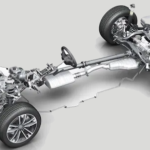How Does Your Car’s AC Impact On Mileage & Performance? The topic of whether the air conditioning (AC) system affects a car’s performance and fuel efficiency is a common debate among car enthusiasts and drivers. Many believe that keeping the AC off while driving can enhance a car’s power and mileage, but is there any truth to these claims? In this article, we will delve into the relationship between the AC system and your car’s performance to determine whether turning it off can actually make a significant difference.
Apart from all debates, it has been observed that whenever anyone drives a car and they want more power or better say speed on the road, then they often choose to keep their Car’s AC off. However, it is not actually proven if it is true or not, but this is something that most people do follow as it has been happening for a long time. Although, the fact can not be denied that the AC does consume a bit of power why you should keen your AC off if you want more speed. Well, here you will find all the answer that might help you understand the concept.
Does Car AC Impact On Car’s Performance?
When it comes to maximizing fuel efficiency and optimizing vehicle performance, drivers often explore various methods. One commonly debated topic is whether driving without air conditioning (AC) can save fuel, enhance mileage, and boost power. Here we will illuminate your sight towards the factors that affect fuel consumption, examine the relationship between AC usage and fuel efficiency, discuss its impact on mileage, and shed light on the influence of AC on engine power.
Before we explore the effects of the AC system, it’s important to understand how it works. When the AC is turned on, it places an additional load on the engine, as it requires energy to power the compressor, fans, and other components. This extra load can result in a slight decrease in power, particularly in smaller or less powerful vehicles.
AC’s Impact On Power & Mileage
While the AC system does consume some power, the effect on a modern car’s performance is usually minimal. Advances in automotive technology have significantly improved the efficiency of AC systems, resulting in reduced power consumption. The impact on power is generally more noticeable in older or low-powered vehicles. In most cases, the reduction in power is barely perceptible and does not significantly affect the overall performance or drivability of the car.
Regarding mileage, the impact of the AC system on fuel consumption is relatively modest. It’s true that using AC can cause a slight decrease in fuel efficiency due to the additional load on the engine. However, the difference in fuel consumption between using the AC and keeping it off is generally small and varies depending on driving conditions, vehicle type, and speed. Driving with the windows down at high speeds, for example, can increase drag and negate any potential fuel savings from turning off the AC.
Should You Keep AC Off While Driving, For More Power?
While the impact on power and mileage may be negligible for most drivers, there are still some practical considerations to keep in mind. In extremely hot or humid weather, driving without AC can be uncomfortable and potentially dangerous, especially during long journeys. The AC system not only cools the cabin but also reduces humidity, preventing fogging of windows, which enhances visibility and safety.
Moreover, driving with the windows down to compensate for turning off the AC can increase wind noise and drag, resulting in a less comfortable and potentially less efficient driving experience. The increased drag can even offset any potential fuel savings, particularly at higher speeds.
Instead of focusing solely on turning off the AC to gain a marginal increase in power or fuel efficiency, it is more practical to find a balance between comfort and efficiency. Modern vehicles are designed to handle the additional load of the AC system without a significant impact on performance or fuel consumption. However, if you have a high-performance car or you frequently engage in spirited driving, it may be worthwhile to turn off the AC temporarily to maximize power and performance during certain situations.
Does AC Really Impact On Car’s Performance?
The impact of the AC system on a car’s performance and fuel efficiency is often exaggerated. While there is a minor reduction in power and a slight increase in fuel consumption when the AC is running, it is generally not significant enough to warrant turning it off for everyday driving. The comfort and safety benefits of using the AC, particularly in hot weather, far outweigh the marginal differences in power and fuel efficiency. Therefore, it is advisable to strike a balance between comfort and efficiency, ensuring a pleasant driving experience while maintaining a reasonable level of fuel consumption.
Finally, While driving without AC may save a small amount of fuel in certain situations, its impact on mileage and engine power is generally negligible. Factors such as driving habits, vehicle maintenance, and external conditions have a more significant influence on fuel efficiency and performance. Therefore, it is advisable to use the AC judiciously based on comfort requirements and prioritize other fuel-saving practices for more substantial improvements in mileage and engine power.






GIPHY App Key not set. Please check settings